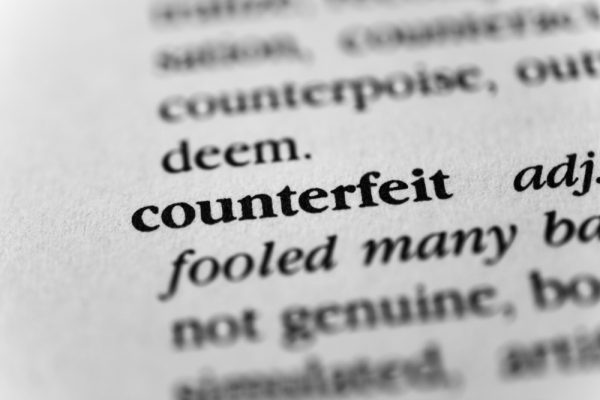
The American Apparel & Footwear Association (AAFA) is lobbying for Facebook and Instagram to be added to the next edition of the US’ annual list of notorious counterfeit marketplaces.
The trade body’s submission to the list – the Special 301 Out-of-Cycle Review of Notorious Markets to give it its full name – also re-nominates e-commerce giant Amazon, which had five of its ex-US websites included in the last edition.
It says the line between e-commerce and social media platforms has blurred in recent years, resulting in an “explosion of social commerce.” Facebook and its Instagram unit have been included as a result of “growing research showcasing the prevalence of counterfeits and fraudulent advertising” on the platforms.
A report published earlier this year by the AAFA and Transnational Alliance to Combat Illicit Trade (TRACIT) showed that 70 major international brands had been targeted by fraudulent advertisements on Facebook, Instagram, YouTube and Google, some of which received up to a quarter of a million views before they were detected.
The AAFA cites one member company that detected over 3,700 profiles on Facebook infringing its trademark rights, 3,500 of which were selling counterfeit goods.
Amazon seller vetting not effective enough
Amazon has taken steps to tackle counterfeit listings on its sites, such as a series of brand protection programmes and a pledge to make sure it identifies sellers on its third-party Marketplace platform, but hasn’t gone far enough, according to the AAFA.
Its members report increased progress and cooperation with Amazon over the past year, but the number of counterfeits on the platform and the systems developed to address them “remain mismatched”, according to the organisation.


Its submission also says that its members “are not confident that Amazon has sufficient measures in place for seller vetting [as] counterfeiters are still able to successfully make their way onto the platform, as noted above, in significant, and growing, quantities”, with repeat offenders allowed to operate in some instances.
It adds however that the AAFA plans to accelerate its engagement with Amazon at all levels in an effort to drive better results over the coming year.
In its submission, AAFA highlighted concerns with the volume of counterfeits and the lack of sufficient brand protection measures on the platforms, as well as the surge in purchasing through them as a result of lockdowns caused by the COVID-19 pandemic.
“As ecommerce has grown, counterfeits themselves have become notorious for entering Americans’ homes via legitimate marketplaces,” said Steve Lamar, president and CEO of the AAFA.
“While in the past one would have to proactively enter physical markets with illicit goods, today the counterfeiters are sneaking into mainstream third-party online marketplaces, and even social media platforms, that we have come to trust,” he added.
“The problem is made worse due to insufficient response measures that do not match the growing size of the problem.”
Legislation is needed to tackle online counterfeit sales, says the trade organisation. US lawmakers have introduced new legislation intended to fight the sale of counterfeit and stolen goods online, by requiring sellers on online marketplaces to have their identity verified.
The INFORM Act would make it mandatory for any online retail platform that allows third-party sellers to authenticate the identity of “high-volume sellers.”
Amazon sent us the following statement in response to the AAFA submission:
"Amazon and AAFA share a common interest in combatting counterfeit. As AAFA stated, we have had regular, productive dialogue with many of its member brands and together, we have made significant progress: leveraging Amazon’s advanced technology and brands’ expert knowledge of their products, Amazon’s automated systems have proactively stopped more than 14 million suspected bad listings for AAFA brands. The results and progress we can make when we work together is indisputable and our efforts have ensured that more than 99.9 per cent of pages viewed by customers did not have a valid notice of counterfeit infringement.
We strongly disagree with AAFA’s recommendation and are disappointed that certain AAFA members have been unwilling to partner with us directly, despite our proven results. We know that stopping counterfeit requires retailers, brands, and law enforcement to work together and while we will continue to engage with AAFA, we look forward to those brands that have not come to the table, to do so."
©
SecuringIndustry.com
 | back to top
| back to top





